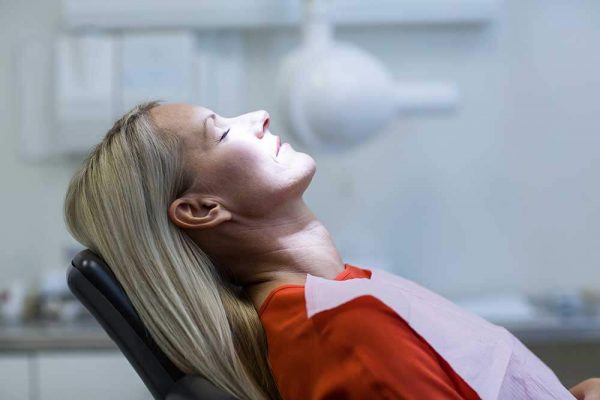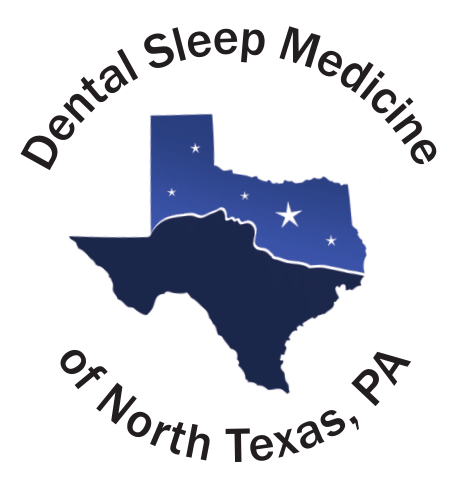A New Dawn for Restful Sleep: Advanced Surgical Solutions

For some individuals, managing sleep apnea with non-surgical treatments like continuous positive airway pressure (CPAP) therapy or oral appliances may not be sufficient. If you’ve explored lifestyle changes and other remedies without success, it may be time to consider surgical interventions.
At Dental Sleep Medicine of North Texas, Waxahachie, TX, sleep dentist Dr. Scott Clinton provides expert care to help you determine if surgery is the right path for relief. Contact our Waxahachie dental office today at (972) 737-5337 to schedule a consultation and take control of your sleep health.
Types of Sleep Apnea

Obstructive Sleep Apnea (OSA)
OSA occurs when the upper airway becomes partially or fully blocked during sleep. Causes include relaxed throat muscles, excess fatty tissue, and anatomical factors like enlarged tonsils or a recessed jaw. Common OSA symptoms include:
- Loud snoring
- Episodes of gasping or choking during sleep
- Daytime sleepiness
- Morning headaches

Central Sleep Apnea (CSA)
CSA stems from the brain’s failure to send proper signals to the muscles controlling breathing. Often linked to medical conditions like heart failure or opioid use, symptoms include:
- Abrupt awakenings with shortness of breath
- Difficulty falling or staying asleep
- A sense of breathlessness during sleep

Complex Sleep Apnea Syndrome (CompSAS)
CompSAS is a combination of OSA and CSA, often emerging during CPAP therapy. Addressing this condition requires specialized evaluation and treatment planning.
When to Consider Surgery
Surgical treatments for sleep apnea may be recommended when:
- Non-surgical methods like CPAP or oral appliances are ineffective or intolerable
- Severe obstructive sleep apnea is diagnosed
- Structural abnormalities in the airway contribute to the condition
Diagnostic Process
Before recommending surgery, patients undergo comprehensive evaluations, including:
- Sleep studies (polysomnography) to assess the severity of sleep apnea
- Airway examinations to identify anatomical issues, such as nasal obstructions or a deviated septum

Surgical Options for Sleep Apnea

Uvulopalatopharyngoplasty (UPPP)
This procedure removes excess tissue in the soft palate and uvula to enlarge the airway, reducing obstructions. While effective for some, UPPP may not be suitable for everyone and carries risks such as infection or voice changes.

Maxillomandibular Advancement (MMA)
MMA repositions the upper and lower jaws to increase airway space. This advanced procedure is highly effective for addressing severe obstructive sleep apnea but involves recovery considerations such as temporary jaw stiffness and bite adjustments.

Hypoglossal Nerve Stimulation (HNS)
HNS is an innovative treatment that uses a small device to stimulate the hypoglossal nerve, which controls tongue movement. By preventing the tongue from blocking the airway, HNS can significantly improve sleep quality.

Genioglossus Advancement (GA)
This GA surgery repositions the tongue’s base to reduce airway obstruction. It’s particularly effective when the tongue contributes to apnea severity.

Nasal Surgery
Procedures like nasal valve surgery or correction of a deviated septum improve airflow through the nasal passages, enhancing the effectiveness of other treatments like CPAP therapy.

Tracheostomy
This last-resort surgery creates a direct airway through the neck, bypassing upper airway obstructions. Tracheostomy is typically reserved for life-threatening cases.
Benefits of Surgical Interventions
Patients who require surgery for sleep apnea often experience many benefits, such as:
- Improved Sleep Quality: Reduced apneas lead to deeper, more restorative sleep.
- Better Health: Lower risk of complications like high blood pressure, stroke, and excessive daytime sleepiness.
- Enhanced Quality of Life: Reduced snoring and improved energy levels benefit both patients and their partners.

Frequently Asked Questions
Is surgery the first-line treatment for sleep apnea?
No. Surgery is typically considered after non-surgical treatments like CPAP or oral appliances have been unsuccessful or poorly tolerated.
Can surgery cure sleep apnea?
While surgery can significantly reduce sleep apnea symptoms, complete cures are rare. Ongoing lifestyle changes and follow-up care are essential.
Are there risks associated with sleep apnea surgery?
Yes. Potential risks include infection, bleeding, or temporary changes in speech or sensation. Your care team will discuss these in detail during your consultation.
Take the First Step Toward Better Sleep
Don’t let sleep apnea continue to disrupt your life. Dental Sleep Medicine of North Texas offers guidance and advanced solutions for sleep apnea tailored to your needs. Call us at (972) 737-5337 to schedule your consultation today. We proudly serve Waxahachie and nearby communities like Red Oak, Midlothian, Maypearl, and Ennis, TX.
Take the next step towards restful nights and better health by filling out our online contact form. A dedicated team member will assist you promptly.
